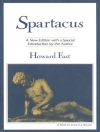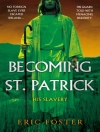Cudjo’s Cave, a significant work by J. T. Trowbridge, is a richly woven narrative that explores themes of resilience, identity, and the complexities of human nature against the backdrop of a hidden cave that symbolizes both refuge and peril. Written in the mid-19th century, Trowbridge’s storytelling combines a vivid descriptive style with elements of Gothic romance, creating a sense of suspense that captivates readers. The novel reflects the author’s engagement with the social iss...
Cudjo’s Cave, a significant work by J. T. Trowbridge, is a richly woven narrative that explores themes of resilience, identity, and the complexities of human nature against the backdrop of a hidden cave that symbolizes both refuge and peril. Written in the mid-19th century, Trowbridge’s storytelling combines a vivid descriptive style with elements of Gothic romance, creating a sense of suspense that captivates readers. The novel reflects the author’s engagement with the social issues of his time, particularly the effects of societal change on individuals, thus positioning it within the broader context of American realism and its evolving literary landscape. J. T. Trowbridge was an influential author and poet whose works often shed light on the American experience. Born in 1827, his diverse life experiences, including his encounters with frontier life and the complexities of human emotion, greatly informed his writing. Trowbridge’s engagement with storytelling as both an art form and a vehicle for social commentary guided his narrative choices in Cudjo’s Cave, revealing his deep understanding of the human condition and the societal influences that shape it. This book is an essential read for those interested in American literature, providing a poignant exploration of character and circumstance. Readers will find themselves immersed in Trowbridge’s thoughtful prose and intricate characterizations, making Cudjo’s Cave a compelling exploration of the intersection between humanity and its environment.












